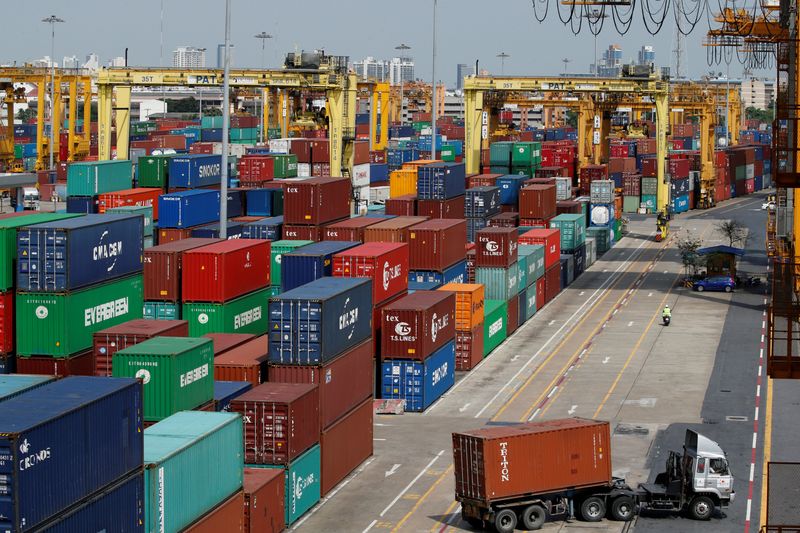BANGKOK (Reuters) – A rapid appreciation of the Thai baht is hitting exporters and tourism spending, the central bank said on Monday, adding that the currency was gaining on a weak dollar in the face of stronger regional currencies such as the yuan and Yen.
The baht hit a 31-month high on Monday at 32.235 against the dollar. It has risen 5.8% this year, which is the second best performance in the region after the Malaysian Ringgit.
Exports and tourism are key drivers of Southeast Asia’s second-largest economy.
The rapid rise in the baht comes ahead of a meeting between the central bank and the finance ministry this week, where the performance of the Thai currency and the country’s inflation target are expected to be discussed.
The meeting, first reported by Reuters, follows months of government pressure on the BOT to cut interest rates and align with fiscal policies aimed at boosting the economy.
The central bank has so far rejected calls for a cut and kept interest rates unchanged at 2.50% for the fifth time in a row last month, saying a cut was not necessary. The next rate revision is on October 16.
The central bank had kept the baht’s volatility under control, BOT Assistant Governor Chayawadee Chai-anant told reporters.
The stronger baht affected exporters in converting profits into baht, she said, adding that it would also impact tourism spending.
Exports rose 11.4% in August from a year earlier, while imports rose 8.5%, resulting in a trade account surplus of $2.4 billion, the BOT said.
The current account surplus stood at $1.4 billion in August, compared with a revised surplus of $0.1 billion in July, due to accelerated exports of agricultural products to trading partners facing shortages, the BOT said.

The economy grew at a faster pace of 2.3% in the April-June quarter, but analysts said uncertainty over fiscal policy clouded the outlook.
The BOT forecasts economic growth of 2.6% for 2024, following last year’s growth of 1.9%, which lagged regional peers.


